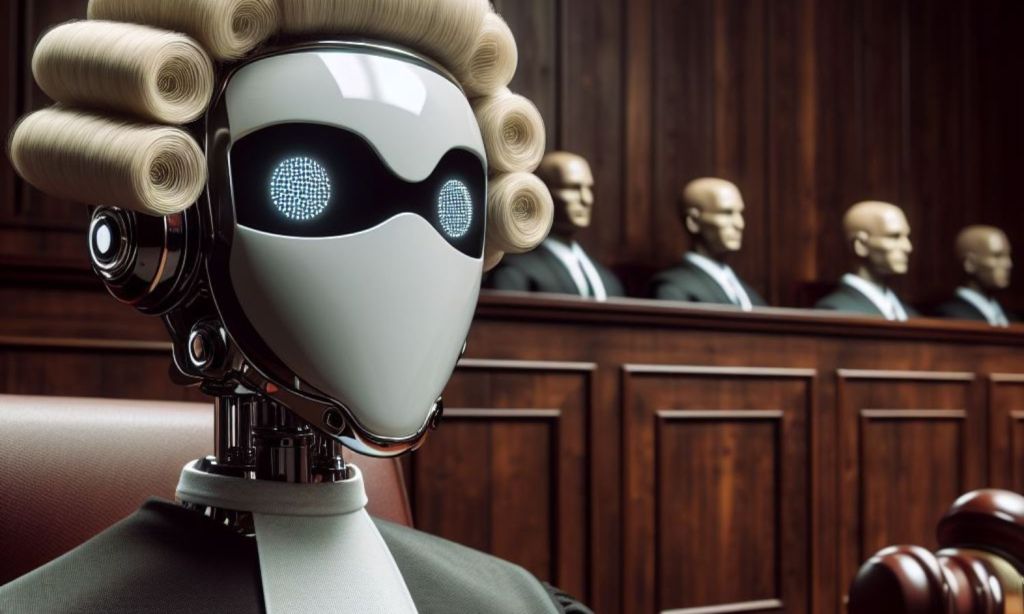Humanity’s future governance and probable subjugation by our robot overlords has taken another step forward with the news that the first law written by artificially intelligence has been passed. Lawmakers in Brazil have enacted legislation written by AI using ChatGPT.
In the city of Porto Alegre, a metropolitan area of roughly 4.5 million people in the country’s south, the council signed into law draft legislation making the replacement of water meters free for the public if they’ve been stolen.
At the time, none of the councillors knew that AI had been involved in the legislation in any way. The draft of that law was written by Counsellor Ramiro Rosario who later revealed that he had used a 49-word prompt to direct OpenAI’s generative text AI tool, ChatGPT, to craft the law.
As such, this is perhaps more of a case of AI steeping in to make up for human laziness than actually replacing workers. Rosario admitted that the council wouldn’t have passed the law had they known it was AI-crafted.
“It would be unfair to the population to run the risk of the project not being approved simply because it was written by artificial intelligence,” Ramiro said.
City Council President, Hamilton Sossmeier, isn’t pleased, however. He has said that the law sets a “dangerous precedent,” but believes that this is going to become an increasingly common practice.
“I started to read more in-depth and saw that, unfortunately, or fortunately, this is going to be a trend,” Sossmeier said.
AI in the Legal System
While this step towards AI automation of the legal system is a relatively minor one, judiciaries around the world have been looking at AI intensely for a number of years. It was reported by Wired in 2019 that Estonia was planning to create a ‘robot judge’ to decide over small claims matters in an effort to clear a backlog of cases. However, in 2022, Estonia strongly denied the claims.
That same year, China was revealed to be using a machine-learning algorithm to cut the workload of judges by more than a third. The system screens court cases for references and provides judges with recommendations on both laws and regulations. The tool “connects to the desk of every working judge in the country,” according to Xu Jianfeng of the Supreme People’s Court in Beijing. Judges who disagree with an AI judgement have to explain why in writing.
Other countries, including Latvia and the UK, have experimented with AI in the courtroom, with one British judge describing ChatGPT as “jolly useful” after using it to summarise an area of law which he then used in a judgement.
While legal inroads by AI are only just starting, most agree that the practice will become widespread in the future. The Handbook for Judicial Officers in NSW assesses that “arguably” human judges will not be replaced by AI, although the technology will probably play an increasing role in assisting judgements.
Critics have said that AI, in its current form, is not very good and making judgements and is riddled with biases that make it a poor replacement for humans. More broadly, it’s difficult to determine exactly why an AI came to the decision that it did whereas human judges make their decisions in public forums that can be scrutinised and overturned.
Australia has of course already seen the devastating impacts of trying to automate parts of the social security system with the Robodebt scandal. Hundreds of thousands of people were affected by automated and inaccurate Centrelink debts and repayments, with many lives destroyed as a consequence.
It serves as a reminder that while AI is more than likely going to impact our legal system in greater ways, the need for human oversight remains essential.
Related: The World Is Finally Beginning to Regulate AI
Related: AI is Being Trained Using ‘Digital Slaves’ in Developing Nations Because of Course It Is
Read more stories from The Latch and subscribe to our email newsletter.

